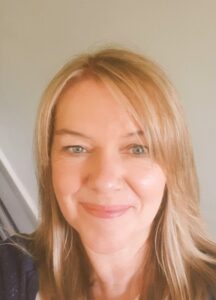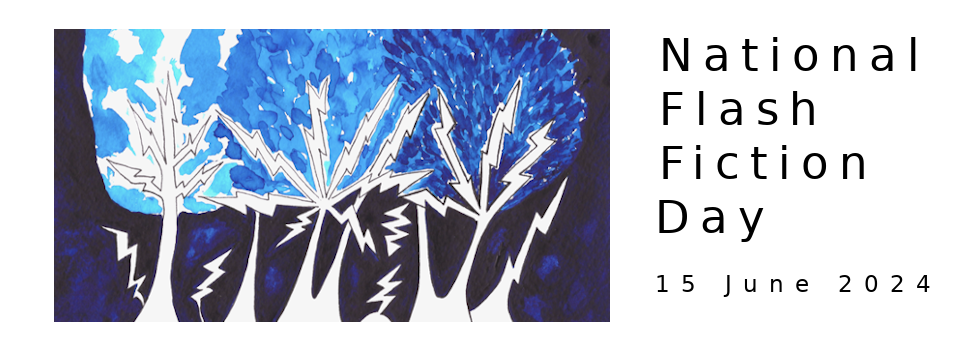Happy New Year and welcome to the second in our series of interviews with this year's National Flash Fiction Day Anthology Editors and Microfiction Competition Judges! Submissions for the Anthology and Microfiction Competition are open until 15 February 2024 and we'll be posting weekly interviews over the next five weeks.
This week, Diane Simmons chats with NFFD's Karen Jones, one of this year's Anthology Editors, about her journey as a reader, writer and editor, and, of course, her advice for those interested in sending work for consideration for the 2024 NFFD Anthology....
 DS: This will be your third year co-editing the anthology for NFFD – thank you for all your hard work. Has there been anything that’s surprised you about the type of stories that you’ve read so far?
DS: This will be your third year co-editing the anthology for NFFD – thank you for all your hard work. Has there been anything that’s surprised you about the type of stories that you’ve read so far?
KJ: I’m often impressed, and, yes, surprised by the ingenuity of our submitters, of how they manage to find new and fascinating ways of interpreting our theme. On the other hand, I’m frequently surprised by how many people make the title of their piece the theme word – please don’t do that. As well as being an administrative nightmare, it always comes across as unimaginative.
DS: The theme this year is the natural elements: earth, air, fire and water. Do you have any tips on how to interpret the theme or any advice on how not to approach the theme?
KJ: My advice for this stays constant: write down the first few words that come to mind when looking at the theme, then discard them, because everyone else has probably thought the same thing. Strive for originality – not easy, I know, but when we see something we haven’t seen before, we tend to get very excited. Remember that we are putting together an anthology, so we want as much variety as possible, so avoid standard subjects e.g. dementia, death of a child, break-up stories, domestic violence, cancer. If you do feel drawn to one of those subjects, try to make it as different as possible, because you will be up against a lot of people writing about the same thing and that reduces your chances immediately.
DS: You have, I believe, been writing flash for over twenty years. Can you remember when you first came across the term and any early flashes that you read that left a lasting impression on you?
KJ: I first came across the term in 2004, but it wasn’t flash as we know it. Back then, when I first discovered it, it was a timed exercise, writing to a theme in a ‘flash’ of around 20 minutes. Then I discovered 60 word stories and drabbles. It was a while before I found places to submit flash as I now know it and my first publication was in print, in an anthology, in 2008.
I don’t remember any specific flashes from that time that have really stuck with me, unfortunately, but I think that’s because there really didn’t seem to be much of it about.
DS: Did you read much as a child. If so, did you have a favourite author or authors?
KJ: I haunted the library as a child and, like most people of my generation, read everything Enid Blyton wrote. But the author who I loved the most was Ruth M. Arthur, and I recently discovered she was Scottish, which I had no idea of at the time. She wrote novels that often included the supernatural, and I adored them. Funnily enough, as an adult, that’s exactly the kind of thing I avoid, having become very easily frightened by supernatural books and films. I was clearly much braver as a child.
DS: You recently had a historical novella Highly Commended in Bath novella-in-flash competition. Do you write much historic fiction and if so, do you have a favourite period of history to write about?
KJ: I don’t consciously think of many of my stories as historical, but I do often write from the POV of a child in the 1960s/1970s which I suppose is deemed as historical now. Stories set in that era and up to the 1990s are probably the ones I find easiest to write, the easiest to slip back into that time and how I saw things then.
